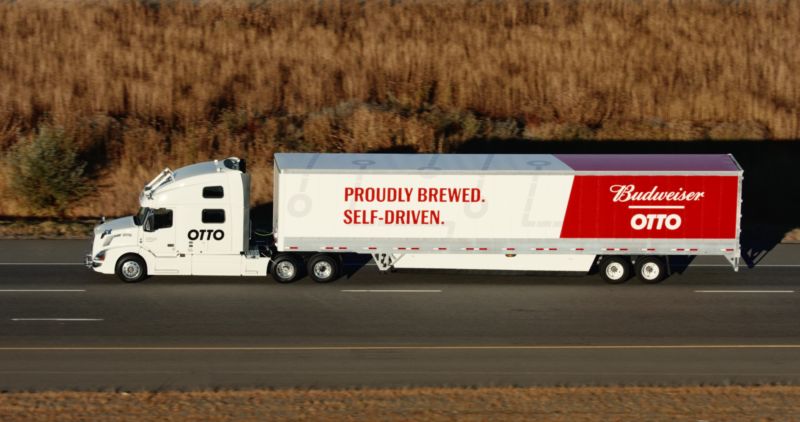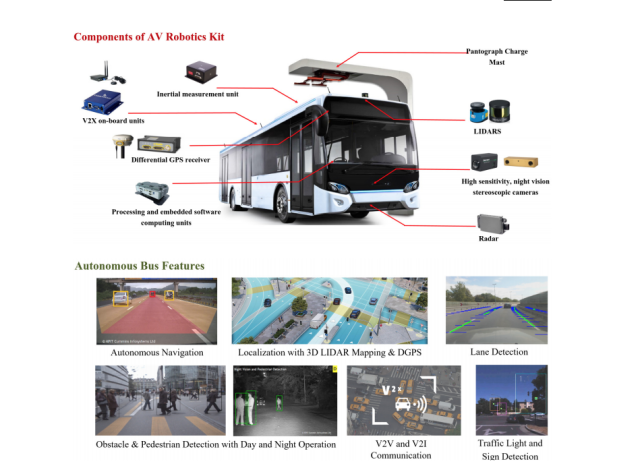
The march toward a future of self-driving vehicles continues apace. In Singapore, a successful pilot trial with driverless buses is expanding, and in Colorado, Uber-owned startup Otto and Anheuser-Busch InBev just used an autonomous freight hauler to ship beer.
Both trials represent baby steps toward a driverless future. The Colorado beer delivery, which TechCrunch describes as "mostly a stunt," required a police escort and several weeks of careful planning to map the route and find a time when traffic was light. Almost 52,000 cans of Budweiser left Fort Collins and drove through Denver to Colorado Springs via I-25, roughly 120 miles (193km).
In a blog post, Otto (which was bought by Uber in August) wrote that it still envisions truck drivers having careers despite their vehicles doing most of the heavy lifting:
With an Otto-equipped vehicle, truck drivers will have the opportunity to rest during long stretches of highway while the truck continues to drive and make money for them. When you’ll see a truck driving down the road with nobody in the front seat, you’ll know that it’s highly unlikely to get into a collision, drive aggressively, or waste a single drop of fuel.
On the other side of the planet, Singapore's Land Transport Authority will use a pair of hybrid buses to shuttle passengers between Nanyang Technical University and CleanTech Park (an eco-business park in the city). But even so, the program represents small steps; the route between the two is extremely short (under a mile). The LTA says it may extend the trial out to Pioneer MRT, a mass transit station several minutes further away.

"NTU’s deep expertise in sustainability technologies, engineering, and industry collaboration has contributed towards developing new solutions for public transportation, such as first-and-last-mile autonomous shuttles and buses," said Professor Lam Khin Yong, NTU chief of staff, in a statement. "Current efforts worldwide have been focused on cars, so this autonomous bus trial is the first-of-its-kind in Singapore that will aim to improve road safety, reduce vehicle congestion, alleviate pollution and address manpower challenges."
These trials of commercial driverless vehicles follow in the lead of a recent demonstration in Europe of semi-autonomous freight truck platoons.
reader comments
116